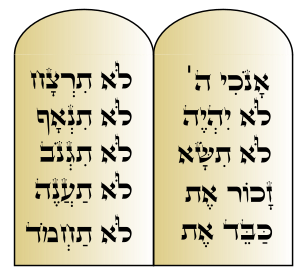Do You Need Biblical Languages to Understand the Bible?
Rod Decker presents a quote in which a famous person suggests you do. Well, sort of. Really he seems to be suggesting that it’s much, much better if you understand the biblical languages. I’ll let you go read the original post to get the quote and find out who wrote it.
I’ve written on this before. I’d like to note here that the answer to this question isn’t binary. There are advantages to knowing the biblical languages. There are ways to improve what you can learn without them, such as using multiple translations and reading good commentaries by people who do know them.
In addition, however, knowing and not knowing biblical languages isn’t binary. There are wide differences in knowledge and how well that knowledge is maintained. This also presents a problem for the person who is looking for good commentary. Is the work you’re reading written by someone with good facility with the language, or someone who pieces together bits of information from various reference sources without really understanding the source text?
One of my professors in graduate school was extremely proficient in the languages. I took Aramaic from him, for example, and got the workout of my life. I really appreciated that workout. He expected us to read unpointed Aramaic texts, and to be able to produce on demand any form of a verb that he might demand, not just the one that happened to occur in the text. (Reading unpointed texts in Hebrew and Aramaic is extremely valuable, but was not required by any of my other professors. When you work on inscriptions or try to apply some knowledge in a language like Ugaritic, you come to really appreciate that foundation.)
At the same time, he interpreted with denominational blinders, which was extremely frustrating. I wouldn’t have taken his word for the interpretation of a passage, but I would have wanted his evaluation of each of the nuts and bolts that went into that interpretation.
Many things go into reading and understanding. It’s not just knowing or not knowing the languages.

I studied 25 or so hours of Greek and really loved it. However, there are such great tools available today, it sure makes it easier to get at the meaning without the Greek background.
-Josh Hunt
I agree that the tools available are wonderful, and I also believe one can do a great deal of serious study without reading Greek or Hebrew, but I will emphasize that there is a difference between looking things up in references and actually being able to read the language. I encourage those who can do so to learn to read and then maintain their biblical languages.